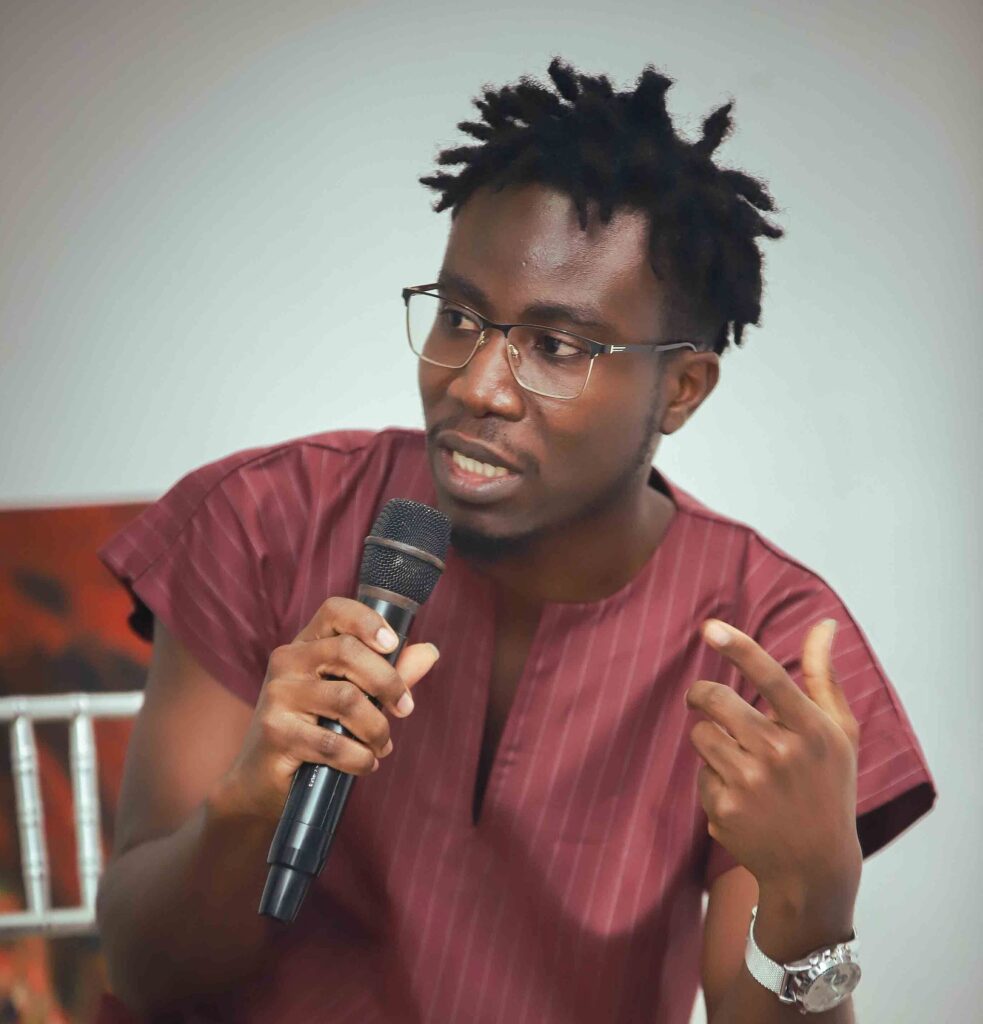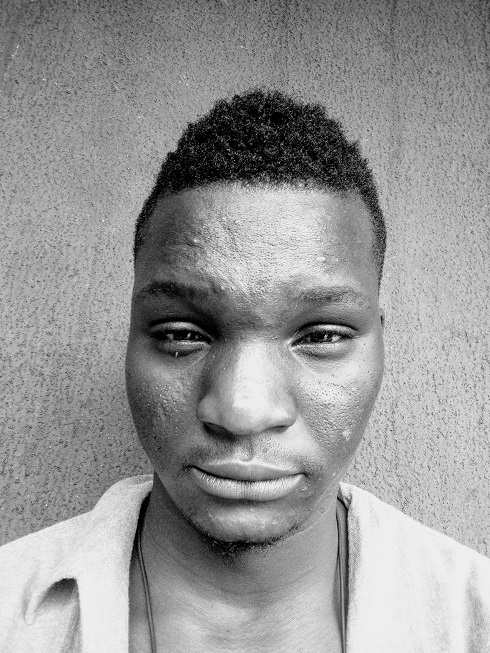Osinachi, the Nigerian writer-turned-visual artist, has collaborated with legendary Afropop producer Don Jazzy on a NFT package.
The crypto artist, whose full name is Prince Jacon Osinachi Igwe, exclusively designs his pieces with Microsoft Office. His usage of the crypto medium for marketing and selling his works has seen him featured on a host of international platforms, including CNN, Forbes Africa, and The Washington Post.
This month, his series, Different Shades of Water, was shown for three days (October 14-17) on screens at the 1-54 London Fair at Somerset House, making it the first NFT by a contemporary African artist to be sold by Christie’s. An online-only auction also took place.
“This is the first ever collaboration between an African visual artist and an African recording artist in the NFT space,” said Osinachi told Open Country Magazine. “What we did is I created the art pieces and he created the music to go with it. We wanted to create a two-dimensional experience, so while you’re seeing the art, you’re hearing the music.”
For Osinachi, it was also about the importance of crossing genres. “Personally, I wanted to use my platform to spotlight Afrobeats which is big in the world today. And Don Jazzy felt that this collaboration could serve as an entry point for Africans, especially Nigerians, who wanted to enter the NFT space as collectors. We did the sale as an open edition so people could have that time frame to collect the work, and for an amount of money which isn’t exorbitant.”
Osinachi’s Different Shades of Water was inspired by Portrait of an Artist (Pool with Two Figures), a 1972 piece by the British painter David Hockney. Osinachi’s thought was: “What would the pool look like with different shades of water?”
In a feature, New African Magazine writes: “Aesthetically and procedurally, Osinachi’s work explores visible existence as protest by depicting and reimagining how individuals and collectives engage in advocacy for freedom of identity by thwarting societal expectations. This could be through the things they wear, the paraphernalia they adorn themselves with, or simply by being and existing in a form (albeit harmless) that the society frowns upon.”
Osinachi, a 2019 Bridgeman Studio Award finalist, further sees potential for writers who’d want to go into NFTs, which, to define its peculiarity, “allows creatives to boycott the gatekeepers and fly in whatever they’re doing.”
He says he hasn’t done much research on crypto literature, but adds, “There could be a way for poets to sell their poems; for flash fiction to enter the NFT space. Where people can say, ‘I own that flash fiction.’ There could also be the potential of what I can call an unveiling of a piece —where a well-known author puts out a piece of work on the blockchain and collectors are able to get to that work by paying a bit of crypto and they get to own a piece.”





